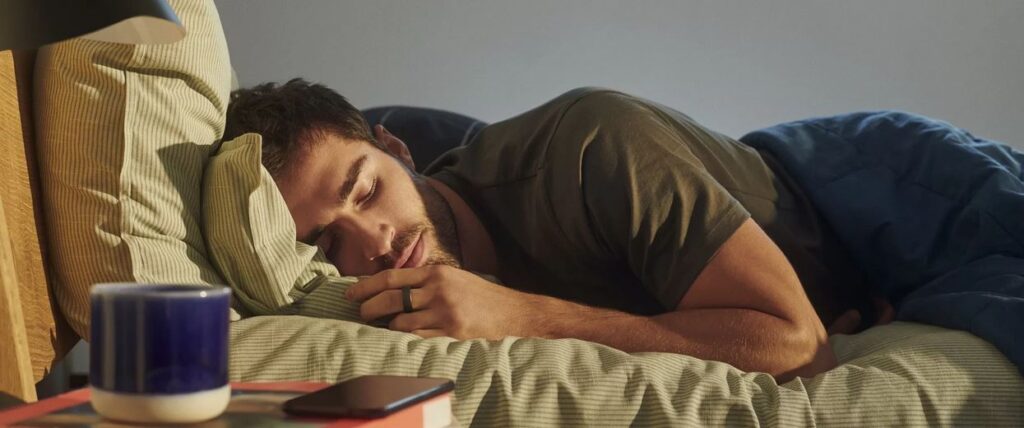Picture this: It’s 11 PM. You’re lying in bed scrolling through your phone. Work stress is racing through your mind like a broken record. Sound familiar? You’re not alone. Research shows people are at their lowest around midnight, yet most men skip the one thing that could change everything – a solid evening routine.
The Evening Game-Changer You’re Missing
“The way we spend our days is, of course, the way we spend our lives.” Dale Carnegie knew what he was talking about. Your evening routine isn’t just about winding down. It’s about setting yourself up to win tomorrow.
Think of your evening routine like prepping for a big game. You wouldn’t show up to compete without warming up, right? Your mind needs the same preparation for rest and recovery.
The Science Backs It Up
Here’s what researchers have discovered about evening routines and mental health:

Sleep Quality = Mental Health Quality A major meta-analysis of 65 studies with over 8,600 participants found that improving sleep led to significant medium-sized improvements in mental health, depression, anxiety, and rumination. Better sleep habits literally rewire your brain for better mental health.
Consistency Is King Studies using machine learning to analyze activity patterns found that people who were more consistent in their daily activity timing were less depressed, while those whose patterns varied throughout the week showed more depressive symptoms. Your brain craves predictability.
Cortisol Control When stress continues into the night, your brain releases cortisol to keep your body on high alert. This fight-or-flight response leads to low melatonin levels, making it difficult to sleep. A structured evening routine helps regulate this stress hormone naturally.
From Chaos to Calm: The Mental Health Connection
Your evening routine does more than help you sleep. It:
- Reduces anxiety by creating predictable patterns your mind can rely on
- Improves mood by giving you control over at least one part of your day
- Builds resilience by teaching your nervous system how to downshift
- Enhances problem-solving by allowing your subconscious to process the day’s challenges
Research shows that establishing routines is effective in treating addiction, bipolar disorder, and other mental health issues because when we organize ourselves and know what to expect, it’s easier to work against negative thoughts and symptoms.
Take Action: Your Evening Mental Health Toolkit
Here are five battle-tested strategies to transform your evenings:
1. The Digital Sunset (30-60 minutes before bed)
Put away all screens. Electronics create mental stimulation that’s hard to shut off and generate blue light that decreases melatonin production. Replace scrolling with reading, stretching, or planning tomorrow.
2. The Brain Dump
One study found that taking five minutes before bed to jot down a quick to-do list helped people fall asleep faster. Write down tomorrow’s priorities, worries, or three things you’re grateful for. Get it out of your head and onto paper.
3. The Body Reset
Progressive muscle relaxation can significantly relax your muscles and calm you down when you’re stressed or anxious. Start by tensing one muscle group for 10 seconds, then slowly release while exhaling. Work through your whole body.
4. The Temperature Drop
A warm Epsom salt bath can help provide calmness and reduce stress. The temperature drop afterward signals your body it’s time to sleep.
5. The Consistent Schedule
Following the same steps each night reinforces in your mind that it’s bedtime. Pick a bedtime and stick to it – even on weekends.
Try This Today
Start with just one element tonight. Pick the easiest one for you – maybe it’s putting your phone in another room at 9 PM or writing down three things from today. Research shows people take an average of 66 days to create a new habit, so be patient with yourself.
Remember: You don’t need to be perfect. Failing to follow your routine for one day doesn’t mean you’re off-track. Just get back to it tomorrow.
Your evening routine is your secret weapon for better mental health. It’s not about having more time – it’s about using the time you have more intentionally. You’ve got this.
Tomorrow’s topic: Team Sports vs. Solo Exercise: Finding Your Mental Health Sweet Spot
⚙️ Build habits that fit your life
Resources
- Taylor Counseling Group – Evening Mental Health Routines
- City of Bridgeport – Consistency Research
- Stanford Medicine – Night Owl Study
- PMC – Regularizing Daily Routines
- CNN – Mental Health and Morning
- WebMD – Psychological Benefits of Routine
- NAMI – Power of Morning Routine
- BMJ Mental Health – Sleep Study
- Sleep Foundation – Bedtime Routine for Adults
- ScienceDirect – Sleep Quality Meta-Analysis
Leave a Reply